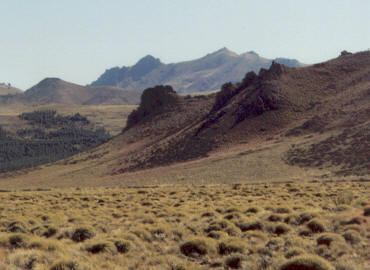| |
|
|
| |
Specifically, the
temperate, semiarid areas of treeless grassland in the mid-latitudes
of Europe and Asia; more generally, any vast semiarid grass-covered
plain. |
|
| |
|
|
[ From the Russian word “Step”
used to indicate the large expanses of Central Asia.]
|
|

World steppes |
The Steppe biome is a marginal and more humid
variant of the desert that separates it from bordering humid
climates, it is a dry, typically cold, grassland that is found
in all of the continents except Australia and Antarctica. It is
mostly found in the USA, Mongolia, Siberia, Tibet and China. The
term is also used to denote the climate or landscape encountered
in such regions
Steppes are located away from the ocean and close to mountain
barriers, they arte too dry to support a forest but not so dry
as to make it a desert. Steppe has warm summers and cold
winters. There is often a lot of snow in the northern Steppes. |
| The Steppe biome is
usually found between the desert and the forest. If it got more
rain, it would become a forest. If it got less rain, it would
become a desert. It is possible to distinguish cool and warm
steppes (and deserts) depending on
different climatic conditions and latitudes. |
|
 |
All the Steppes experience long droughts
and violent winds. Sometimes the summers are so hot that the
grasses catch on fire. That is more dangerous then usual because
the grass is so dry that it spreads quickly. Steppe is similar
to a prairie, although a prairie is generally reckoned as being
dominated by tall grasses, while short grasses are said to be
the norm in the steppe. It may be semi-desert, or covered with
grass or shrubs, or both depending on the season. |
|
| |
|
|
|